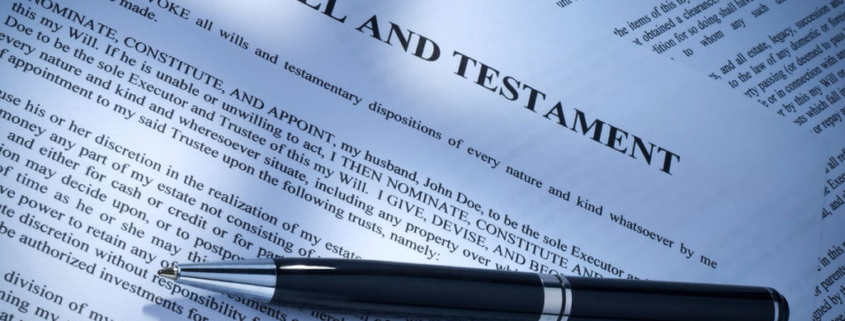The Dangers of Creating a DIY Will
You know that estate planning is an important part of preparing for the future, but perhaps the whole process seems overwhelming. The idea of setting aside time to discuss your options and then spend even more time preparing the proper paperwork might make you wonder if you can just bypass the whole process with a DIY will and last testament. As you may expect, taking a do-it-yourself approach to your estate could have unintended consequences.
Ready to start drafting your estate plan so you can provide for your loved ones? Let us help. Call Haygood, Cleveland, Pierce, Thompson & Short at 334-821-3892 to get started.
A DIY Will May Not Be Valid
The first issue with a DIY will is that it may not even be legally valid. It’s not enough to write down what you want to happen with your assets after you die—the court has to consider your will valid before it will enforce it. An unenforceable will can cause huge distress within the family, lead to infighting between those who believe they deserve your assets, and stress over your final wishes. Working with an estate attorney ensures that your will is legally enforceable.
You Could Miss Important Documents
It’s rare for an entire estate plan to include nothing but a will. It’s far more likely that a complete estate plan for you would include several types of documentation and perhaps even separate entities, such as a trust. Unfortunately, if you do your estate planning on your own, these issues won’t come up until it’s too late.
Your loved ones will be left going through probate, trying to piece together your final wishes, and handling any concerns that arise. Far from saving your family the stress of understanding what you want, a DIY will could actually cause more problems.
Your Language May Be Unclear
Estate planning documents need to be precisely and undeniably clear in their language. Any murky language opens the door for people to contest the will or claim that they know what you really meant. Consider, for example, a will that states you want to leave all of your assets to be evenly divided amongst your children. Does that just mean your biological children, or does it include your stepchildren?
What if a child becomes estranged from the family between the writing of the will and the reading of the will—does it include them? What if a previously unknown child of yours comes forward after your passing and demands their share of your estate? Even if you think your language is clear, there are probably several ways someone could misread it in bad faith. Your attorney will cover all of those bases to prevent your assets from being misappropriated after your passing.
Your Documents Will Need Frequent Updates
An estate is not a one-and-done deal. It is a living collection of documents that must be changed, added to, and cut down as the circumstances of your life change. Without revisiting your documents each year to ensure they’re up to date, you risk confusion and distress among your family members when you pass away.
A wide range of issues require a revisit of your estate documents. For example, a divorce in the family could require you to cut a previously included son-in-law or daughter-in-law out of your will. If someone named in your will passes away or becomes incapacitated, you may need to distribute their portion of assets to others within your family. If an asset is sold or given away, you’ll need to take steps to remove it from your will.
Failing to address these issues as they arise could leave your family members with a will that includes estranged family members, deceased loved ones, and assets that don’t actually belong to you anymore. This is an enormous burden to place on them as they navigate this painful time.
Get the Estate Planning Advice You Need
With the help of an estate planning attorney in Alabama, you can avoid these and other pitfalls. Schedule a consultation with us today so we can help you meet your estate planning goals. Schedule with Haygood, Cleveland, Pierce, Thompson & Short online, or call us at 334-821-3892 to get started.





Leave a Reply
Want to join the discussion?Feel free to contribute!